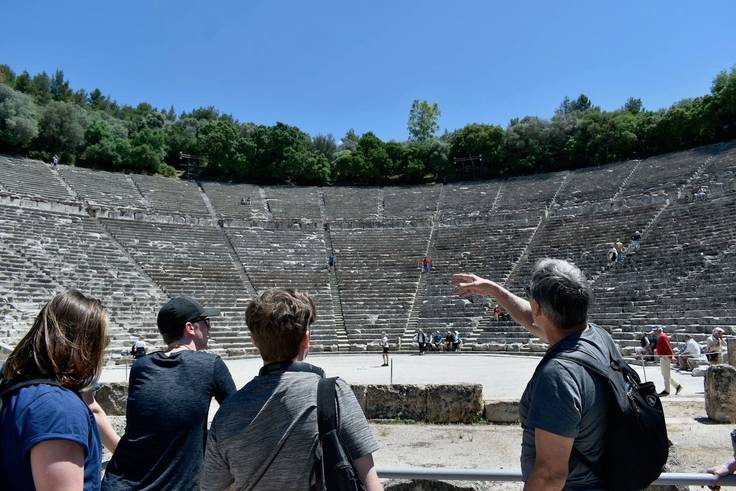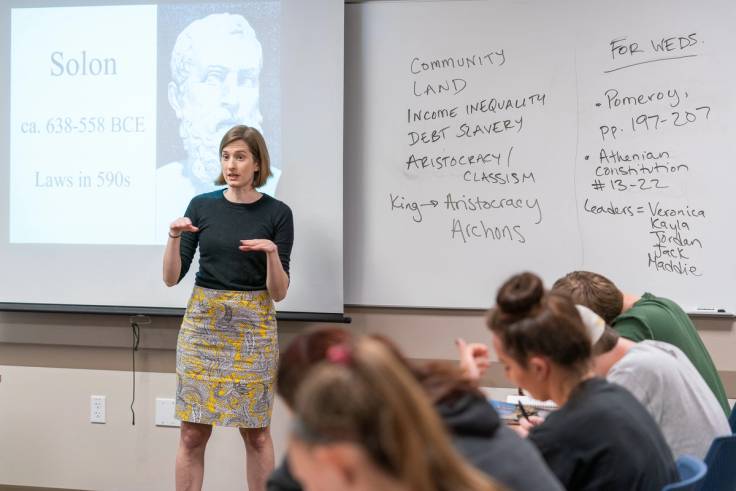What You Will Learn as a Classical Studies Major
Our Mission
Classical Studies embodies a tradition in learning and human understanding that began in the ancient world and became the core of liberal arts education. The core of our Classical Studies program is language study, with Latin and Ancient Greek available, accompanied by an interdisciplinary exploration of the Hellenic and Roman worlds through archaeology, history, and philosophy.

Global Citizenship
The idea of global citizenship comes from Greek and Roman philosophers who lived in a diverse and multicultural society where questions of ethnicity, borders, tensions between individualism and community engagement, political autonomy, and global responsibility were regularly debated. Studying these cultures offers a context and a concrete historical antecedent for reflection and analysis of our current global participation.
In addition to studying these issues, you will be encouraged to go abroad and study the remains of Classical culture through field studies and archaeological excavations.

Responsible Leadership
The historical and literary texts that constitute the core of the study of Classics center on issues such as justice, democracy, human excellence, duty, persuasion, and power. The material remains of the Classical World also offer a venue for examining the coercive power of images and architecture in dictating behavior. The explicit goal of such study is to produce skeptical and responsible consumers and producers of images and texts.

Productive Careers
As an interdisciplinary major, Classical Studies will help you develop the broad and flexible skills so needed for the constantly changing demands of today's workforce. You will learn to be a clear, critical, and engaging writer, to be a persuasive and coherent speaker and to understand and interpret visual culture. You will develop concepts and theoretical tools to work in a democratic and politically engaged environment and critical and reflective tools to engage in responsible and effective debate.
Therefore, while a Classics degree is especially sought after in fields such as education, publishing, law, medicine, and cultural industries, it is ultimately valuable for any profession that values thinking, communication, creativity, cultural knowledge, linguistic excellence, and analytical prowess.

Meaningful Lives
Ancient philosophers argued that a critical evaluation of what constitutes the "Good Life" is one of the most important questions that one can ask. Greek thought demands that every individual assertively and rationally explore the nature of what is True, Good, and Beautiful -- in short what makes up a meaningful life and how to pursue it. You will not only explore such questions within the ancient world but are also be asked to evaluate your own responsibilities to self and society in the modern world through the lens of ancient experience.
Interested in Studying Classical Studies at Rollins?
Sign up to receive more information about living and learning at Rollins.
